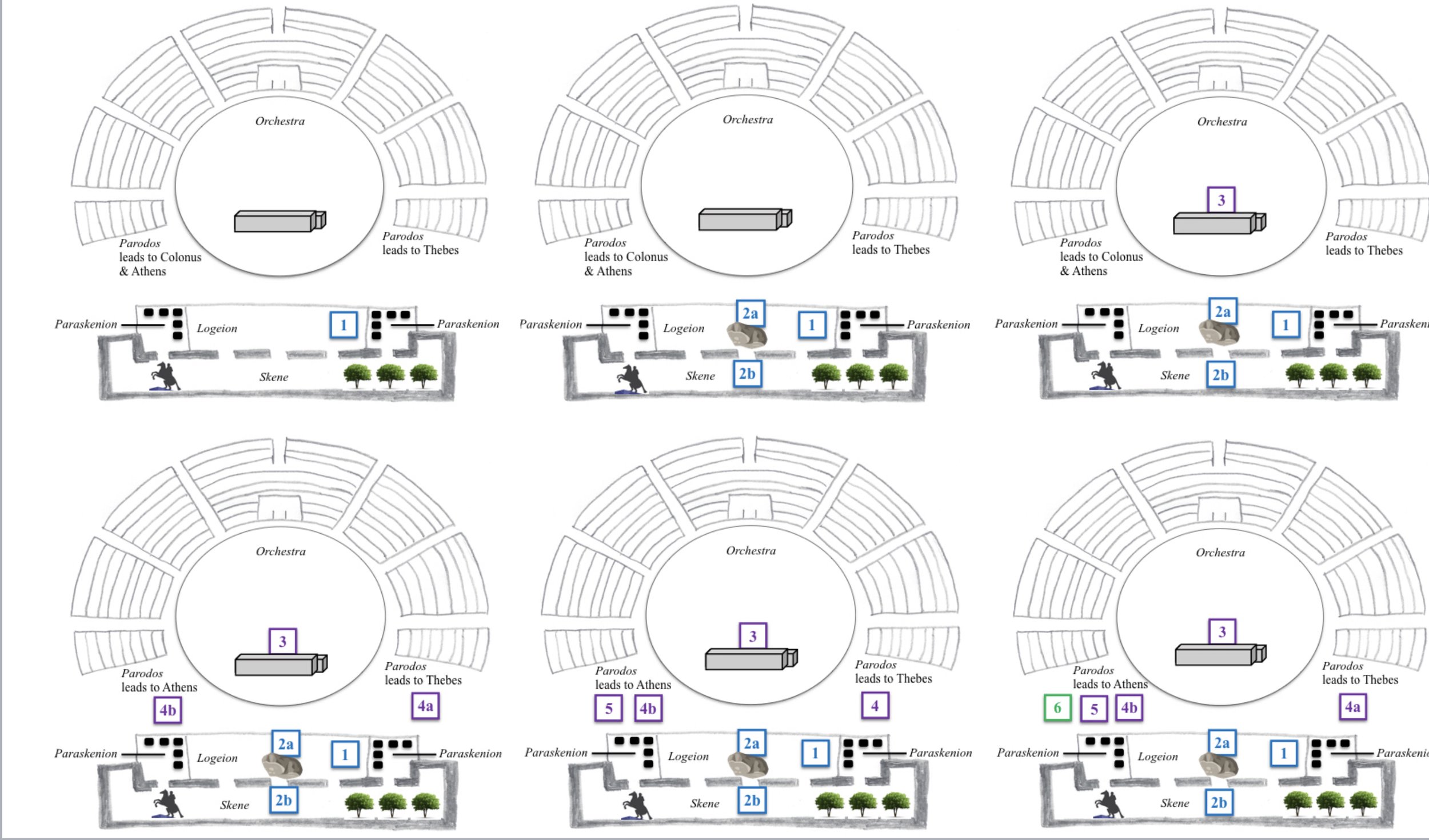Living Ancient Greek
Honored to have served as Assistant Dramaturg to the Cambridge Greek Play, performed entirely in Ancient Greek and with original music score. I helped adapt the play in Ancient Greek for the stage and wrote the translation into English for audience surtitles.
For much of the play, the dying, polluted Oedipus wanders in the grove of Colonus in search of an asylum for his destined resting place. We put a contemporary spin on this end-of-life space by staging the play in a hospital. The medical circle mimics the sacred circle of the orkhestra.
Analysis of the play
I sketched movements of Oedipus, in the theatre setting and grove of Colonus
I discovered six distinct spatial patterns:
Stage 1: Outcast
Space #1 – Unknown – Wandering
Space #2 – Sacred – Trespassing
Stage 2: Metamorphosis
Space #3 – Inviolable – Negotiating
Space #4 – Ritual – Cleansing
Space #5 – Burial – Leading
Stage 3: Hero
Space #6: Deme of Colonus – Protecting
3. I was surprised to find equivalences of these patterns across a number of other extant suppliant tragedies, despite differences in time, context, and place (Colonus, Argos, Athens). I would be keen to research further:





